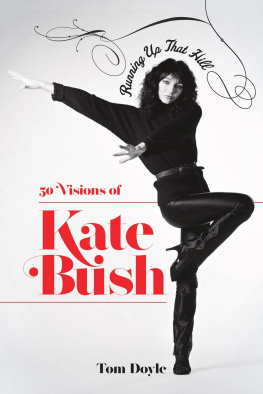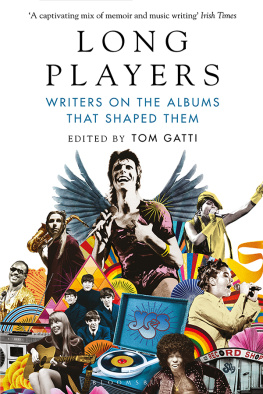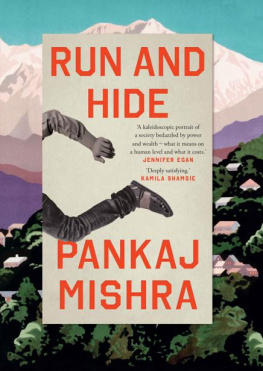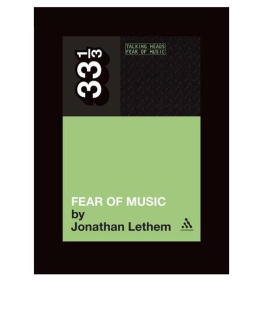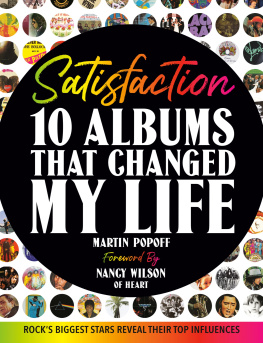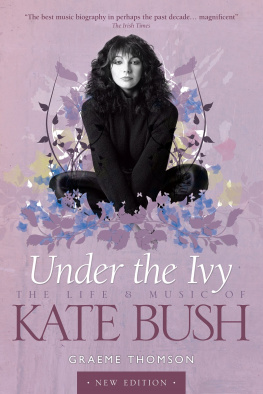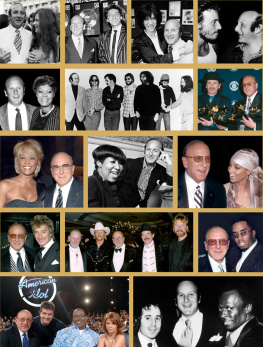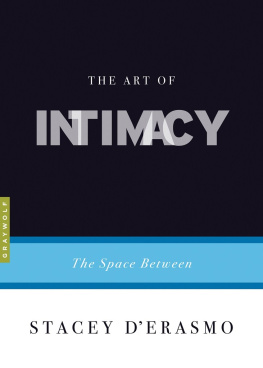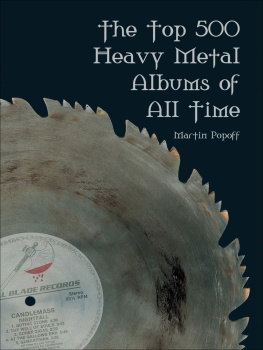I t took me years to figure out music. I was an only child, with no savvy brother or sister to guide me through what seemed like a confusing, arcane world of bands, songs, logos, and discographies. I entered high school in 1981, and heard my classmates talking about Abacab and 2112 and Live at Budokan . They may as well have been speaking in Finnish. But I had no great desire to be led out of my ignorance. Every afternoon, I boarded the school bus for home, finding a seat somewhere in the middle, not too far back (where the burnouts sat) and not too far in the front (where the girls sat). The doors slapped shut. From behind me I could hear a boom box clicking into action, and what I later learned were the opening bars of AC/DCs Hells Bells or Led Zeppelins Immigrant Song, loud and terrifying, wailed over our heads. The bus driver scolded and threatened ineffectually. The volume was turned higher. Music, I thought, is a bad, bad thing.
At least, this kind of music, teenager music, was bad. At home, I still listened to the soft rock of the previous decade: Olivia Newton-John, Kenny Rogers, Anne Murray. I found that music could be a solace for the muddle of school life. Not playing music: I took piano lessons, and I was a dismal, nonpracticing failure. Listening to music, though, got me daydreaming. I would create stories or imaginary films based on the lyrics of whatever song was playing on my record player, or I would fantasize that I was cast as the star of a musical set at my school, with scenes where the whole lunchroom burst into choral accompaniment, dancing on the tables, while I crooned in the spotlight. Still, I was aware that my favorite music was dated and wimpy. If anyone asked what bands or singers I liked, I said that I didnt listen to music. Better to appear hopelessly out of touch than to carry a torch for a kind of music so ripe for ridicule.
At some point, a leaflet arrived in the mail stating that our local cable company was adding some new stations. One of them was MTV. Soon I was spending afternoons on the living room couch, one leg hooked over the armrest, watching video after video. The heretofore mysterious world of popular music began to reveal itself. In the early 80s, new bands were sprouting up like gaudy wildflowers. British people sang in bright, flapping clothes, plinking out notes on electronic keyboards; hair grew in every color and direction. My classmates talked about the videos theyd seen: Karma Chameleon, by Culture Club and Boy George, a man who wore a dress; Rio, by Duran Duran, who made the girls swoon; When Doves Cry, by Prince, who left us all aroused and perplexed. There was something for everyone, even me. I made a mental list of my new favorites: Squeeze, the Police, and Men at Work.
I began to buy records. In time, I had amassed a small but respectable music collection. By my senior year, I was in possession of my fathers old brown Ford sedan and a drivers license, and I was a regular customer at Strawberries, the local chain record store. But it was by an egregious sidestepping of copyright laws that I learned the most about rock music. In downtown Albany, a fifteen-minute drive from my house in the suburbs, there was a dumpy basement shop run by a grizzled man who often had food in his beard. The racks were filled with unwrapped albums, both current titles and classics. You could buy one of these already-played records for seven dollars. Return it within three daysenough time to tape itand you got four dollars back. Blank cassettes were displayed prominently by the cash register. The message was clear. My friend Doug and I would drive to Music Miser after school, and I would rent albums in pairs, filling blank tapes with crackly recordings made on my Sears all-in-one stereo.
It was like learning a new language with a hundred different dialects. I could now discuss bands in the school hallway with confidence, debate who was cool and who wasnt, argue over best and worst albums. I wrote song lyrics on my blue cloth binder. I went to my first concert, the Pretenders and Simple Minds, with three friends and no supervising adults at the nearby Saratoga Performing Arts Center, an outdoor arena with a lawn where people drank beer and smoked pot. The drinking and smoking seemed wrongthat way lay rowdiness and chaosand I felt a little uncomfortable being out so late in the night, away from home. But the music had saved me from ignominy, and I was grateful.
Still, listening to record albums offered me more than mastery of my social world. Around the same time, I became interested in good literature and in what we then called art movies. I read Italo Calvino and Philip Roth, and discovered Franois Truffaut and Jim Jarmusch, and the world beyond our suburb began to seem a little bit larger. At the same time, books, movies, and records made my insides seem a little bit larger too. I sat in my room, in front of my turntable, on warm summer afternoons when I really should have been outside, my parents said, getting some fresh air. (There was a new refrain in our house: Turn the music down.) I played my records over and over again. I listened very closely, and sometimes the songs seemed to be written about me, for me. How did all of the hyper, hiccuppy tracks on the Buzzcocks Singles Going Steady manage to neatly sync up with the twisting, mutating emotions induced by my high school crushes? What was the strange excitement that swept over me when I listened to Patti Smiths Horses , sex rising like incense from my stereo?
At other times, the songs and words seemed to have nothing to do with my life. What, for example, could a suburban adolescent male possibly take away from Joni Mitchells Hejira , an album about a woman entering her thirties, wrestling with the alternating calls of freedom and commitment as she travels into the heartland, meeting lovers and drifters, frequenting jazz clubs and staying in lonely motel rooms? And yet, somewhere, deep inside me, it felt like a window was being opened. I was learning about what it meant to be an adult, about the many different ways of living a life.
Almost as soon as I began to like music, I began to like music writing. I became a compulsive reader of record reviews, racing to the magazine rack whenever I went to the record store and leafing through Rolling Stone s back pages to memorize the star ratings. (Later, I threw over Rolling Stone for the much hipper Spin , which introduced me to the sharper, smarty-pants style of music writing that prevails today.)
In college and the years after, I got deeper into fiction and poetry, and soon I had two loves, literature and pop music. It seemed that never the twain would meet. I couldnt listen to music while reading or writing, and vice versa. Each seemed to have different rules of engagement, to occupy a different quarter of my brain. Sometimes I got snobby and thought that I had outgrown pop music, that from now on I was going to walk in the loftier air of the republic of letters. But of course music kept drawing me back. My visits to bookstores were divided between the long, twisting rows of fiction and the meager bay devoted to music books. I would think about how few novels and poems and memoirs of literary quality had been written about pop music, and how rarely music criticism provided the emotional heft of contemporary fiction.
I came up with the idea for the book that you now hold in your hands for selfish reasonsI wanted to bring music and literature together. The truth is that writers love music. A good ear is almost a requirement of the job; the best writing has voice, has rhythm. When writers get together, the first question that they ask each other is, What have you been working on? The second is often, What have you been listening to?



